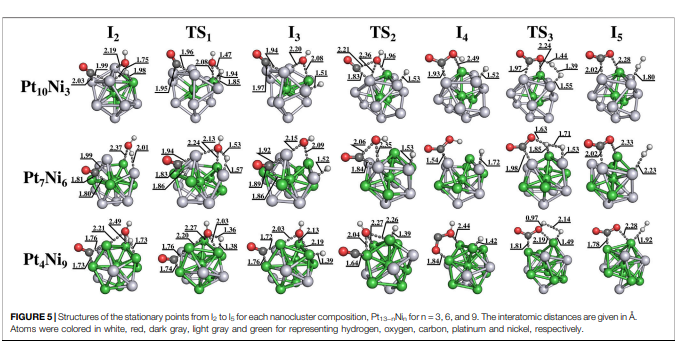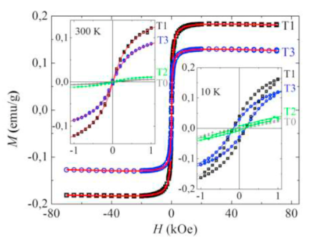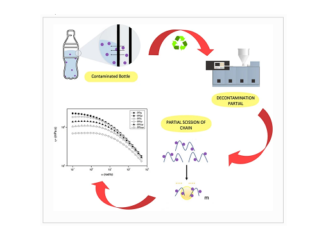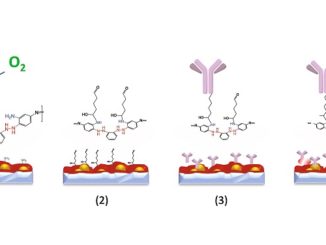
A Theoretical Study on the Structural, Electronic, and Magnetic Properties of Bimetallic Pt13−nNin (N = 0, 3, 6, 9, 13) Nanoclusters to Unveil the Catalytic Mechanisms for the Water-Gas Shift Reaction
Abstract: In this work, first-principles calculations by using density functional theory at the GFN-xTB level, are performed to investigate the relative stability and structural, electronic, and magnetic properties of bimetallic Pt13−nNin (n = 0, 3, 6, 9, 13) nanoclusters by using corrected Hammer and Nørskov model. In addition, by employing the reaction path and the energetic span models, the energy profile and the turnover frequency are calculated to disclose the corresponding reaction mechanism of the water-gas shift reaction catalyzed by these nanoclusters. Our findings render that Ni causes an overall shrinking of the nanocluster’s size and misalignment of the spin channels, increasing the magnetic nature of the nanoclusters. Pt7Ni6 nanocluster is the most stable as a result of the better coupling between the Pt and Ni d-states. Pt4Ni9 maintains its structure over the reaction cycle, with a larger turnover frequency value than Pt7Ni6. On the other hand, despite Pt10Ni3 presenting the highest value of turnover frequency, it suffers a strong structural deformation over the completion of a reaction cycle, indicating that the catalytic activity can be altered.
Author(s): Barrionuevo, M.V.F.; Andrés, J.; San-Miguel, M.A.
Frontiers in Chemistry
Published: 25 March 2022
DOI: https://doi.org/10.3389/fchem.2022.852196
CDMF
The CDMF, hosted at the Federal University of São Carlos (UFSCar), is one of the Research, Innovation and Dissemination Centers (RIDC) supported by the São Paulo State Research Support Foundation (Fapesp), and also receives investment from the National Council Scientific and Technological Development (CNPq), from the National Institute of Science and Technology of Materials in Nanotechnology (INCTMN).




